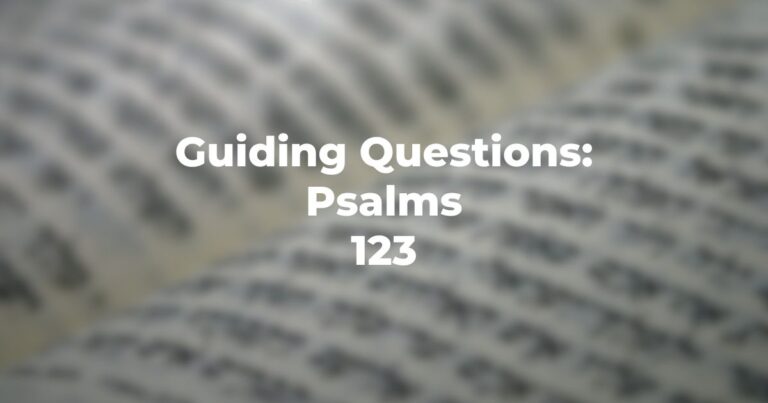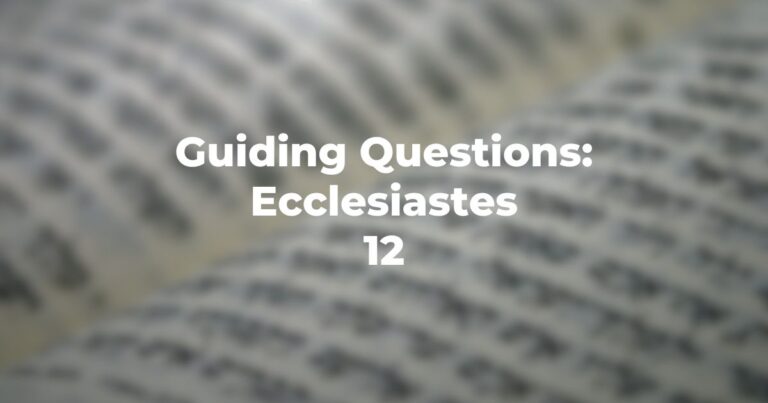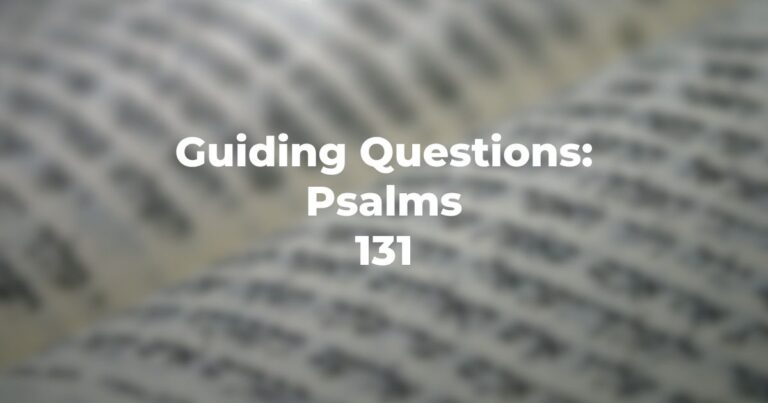- This is the only Psalm which is “attributed” to Moses; does this reflect upon the date of its composition?
- What does Psalms 90:2 assert as to a “time element” as an attribute of God?
- If the end of Psalms 90:2 (in Hebrew) was to conclude with atah (“to all eternity You are”) and the last word El (God) was to be transferred to Psalms 90:3 and pointed al (do not) then Psalms 90:3 would read “do not send man back to dust”. Would this be a more affirmative statement or is the translation/pointing in the JPS apparently more acceptable?
- Do Psalms 90:5-6 speak of a 24-hour period or, rather, of the nature of life from its beginning to end?
- Do Psalms 90:7-9 reflect “a pleasant life” or one that is lived with total uncertainty?
- According to Psalms 90:10 what is the span of human life?
- Would Psalms 90:12, introduced by the word “therefore”, be a fitting capstone for the verses preceding?
- The closing verses (Psalms 90:13-17) utter a plea — is it a plea for a better life? for a blessing from God generally? for prosperity? — or for all of these?
Author
-

Exploring Judaism is the digital home for Conservative/Masorti Judaism, embracing the beauty and complexity of Judaism, and our personal search for meaning, learning, and connecting. Our goal is to create content based on three core framing: Meaning-Making (Why?), Practical Living (How?), and Explainers (What?).
View all posts




